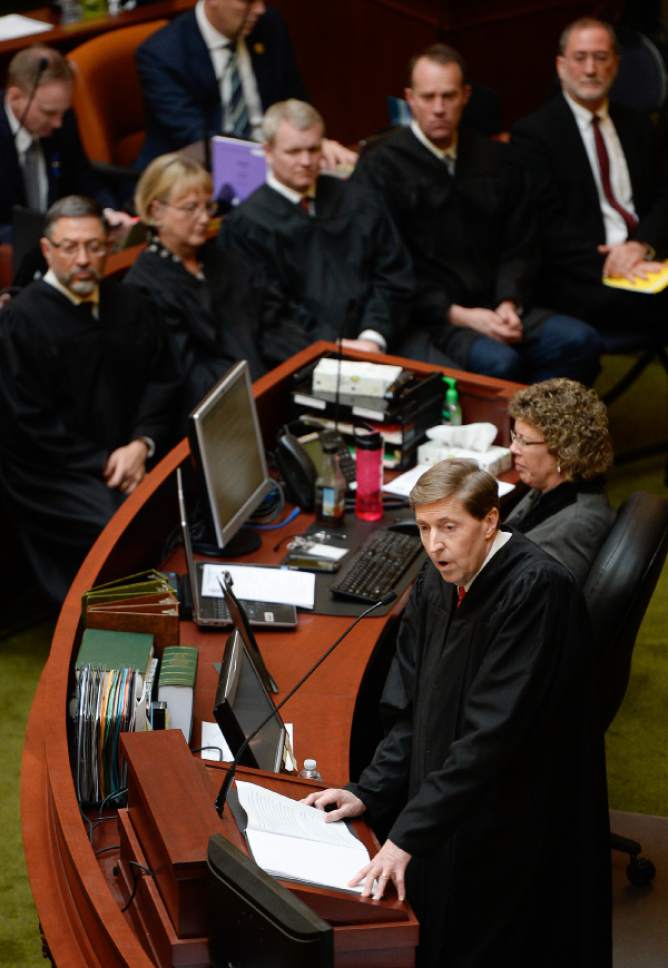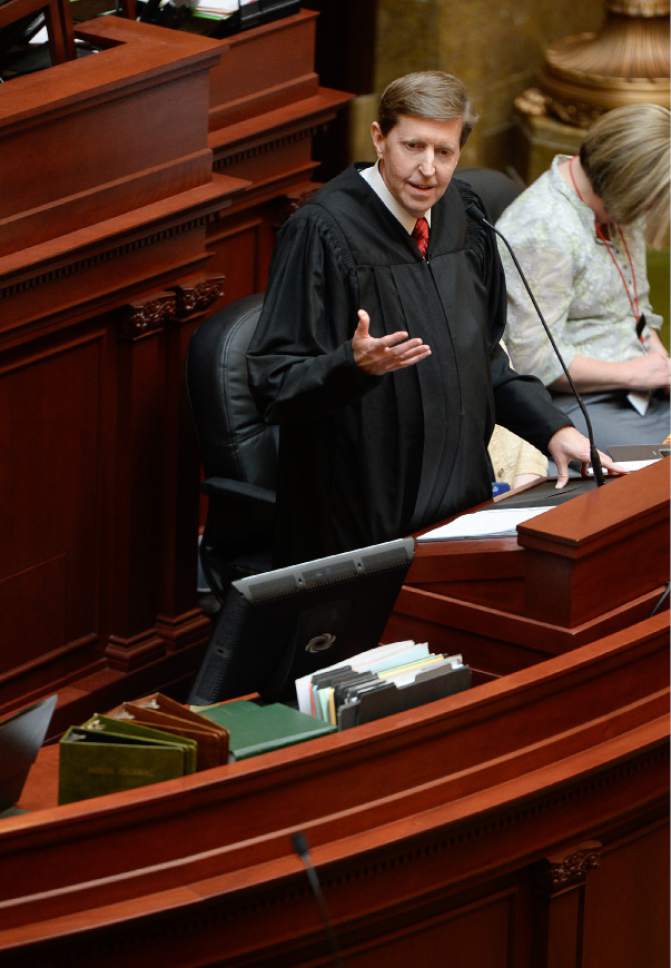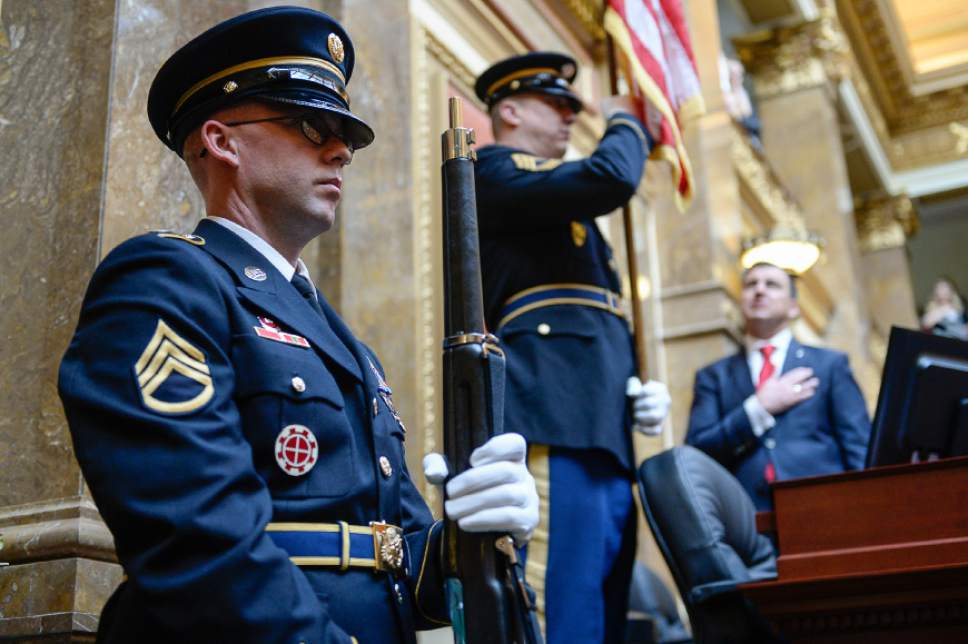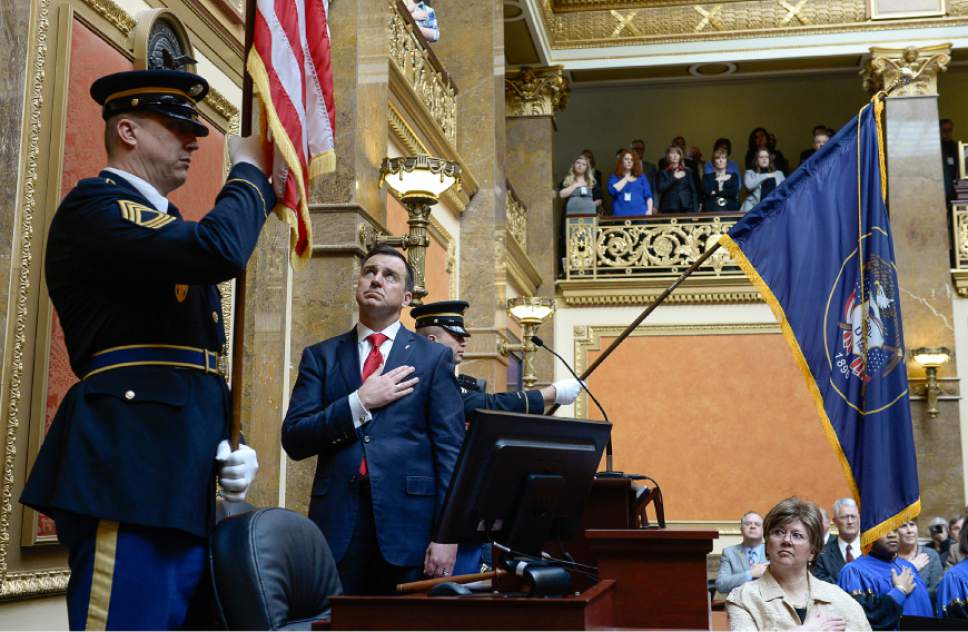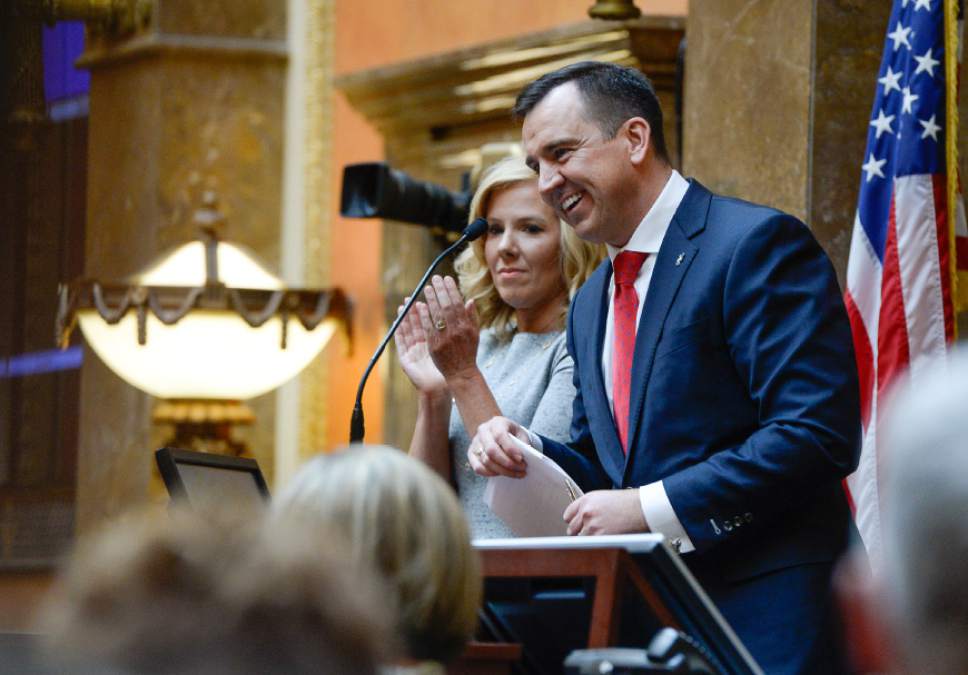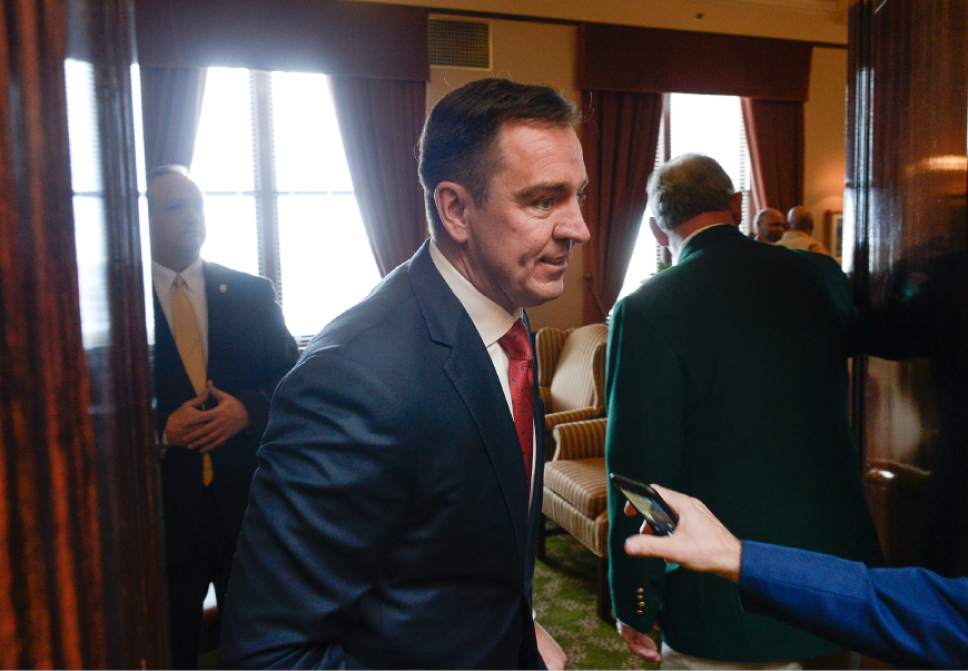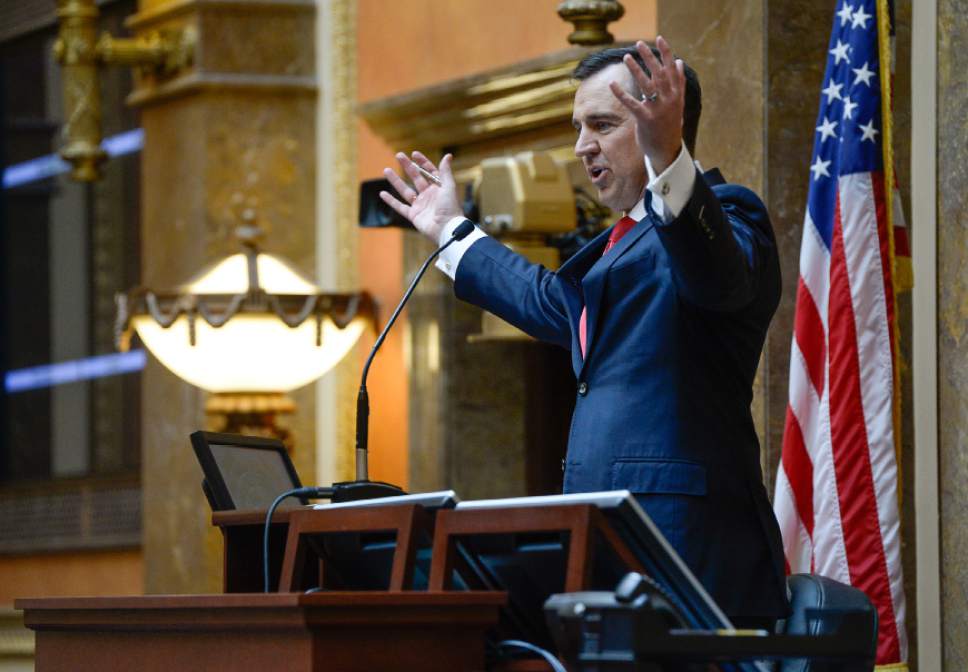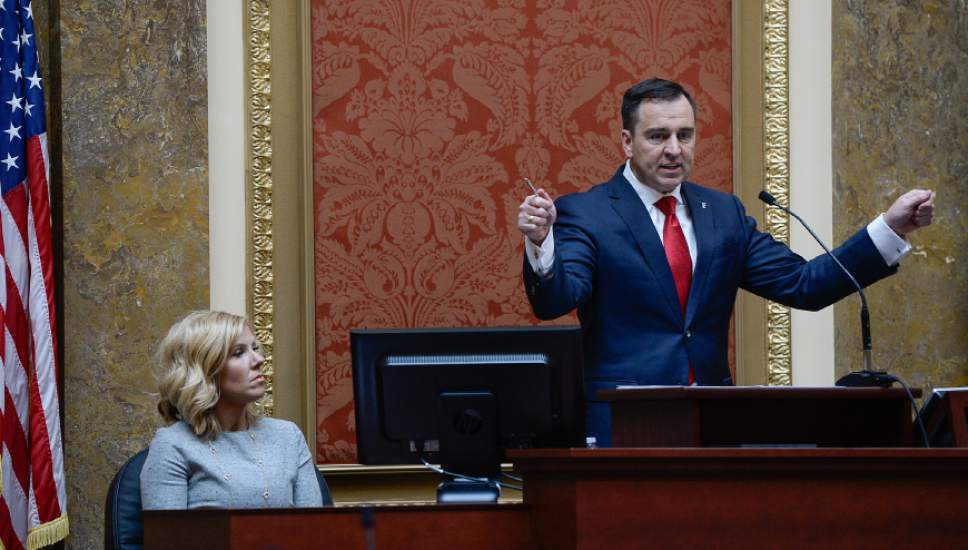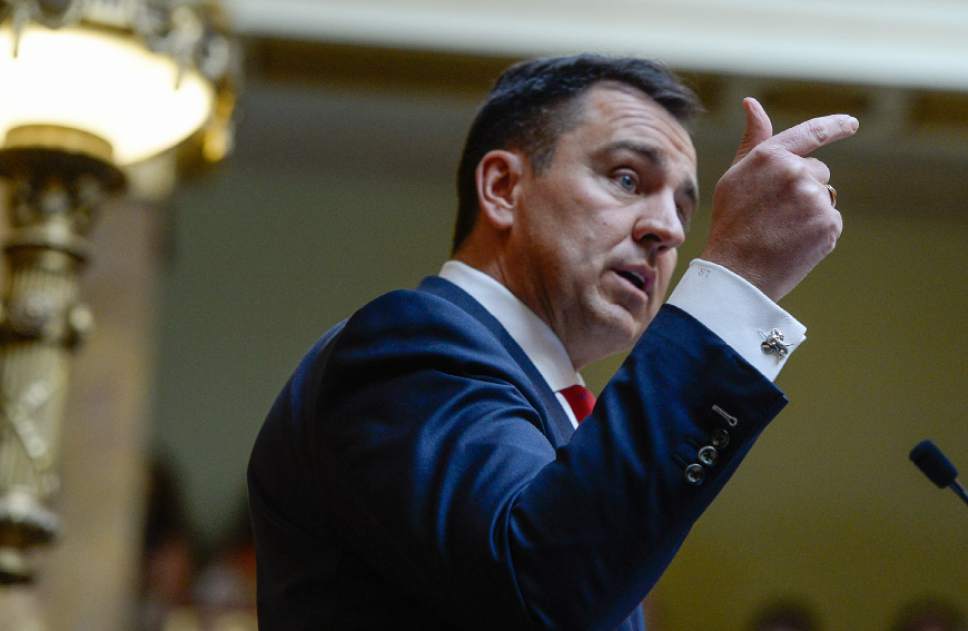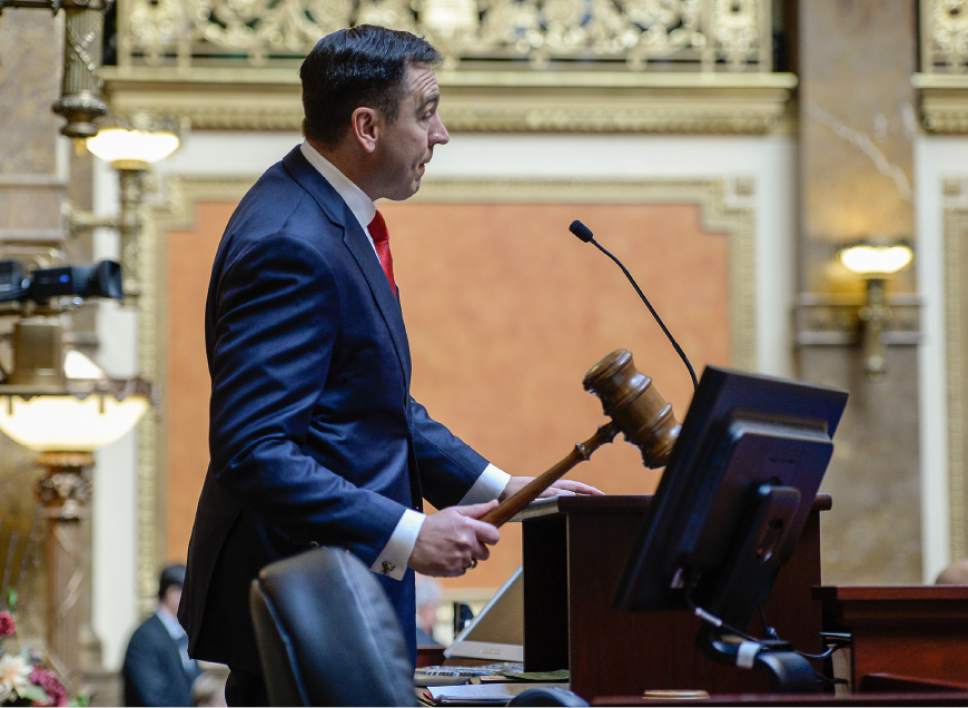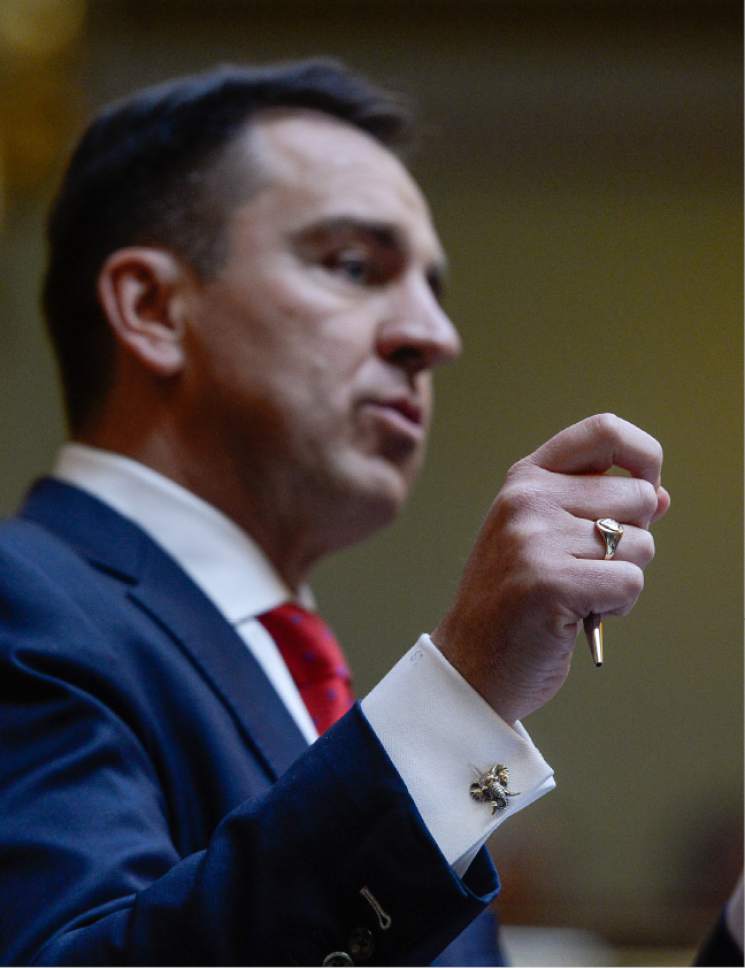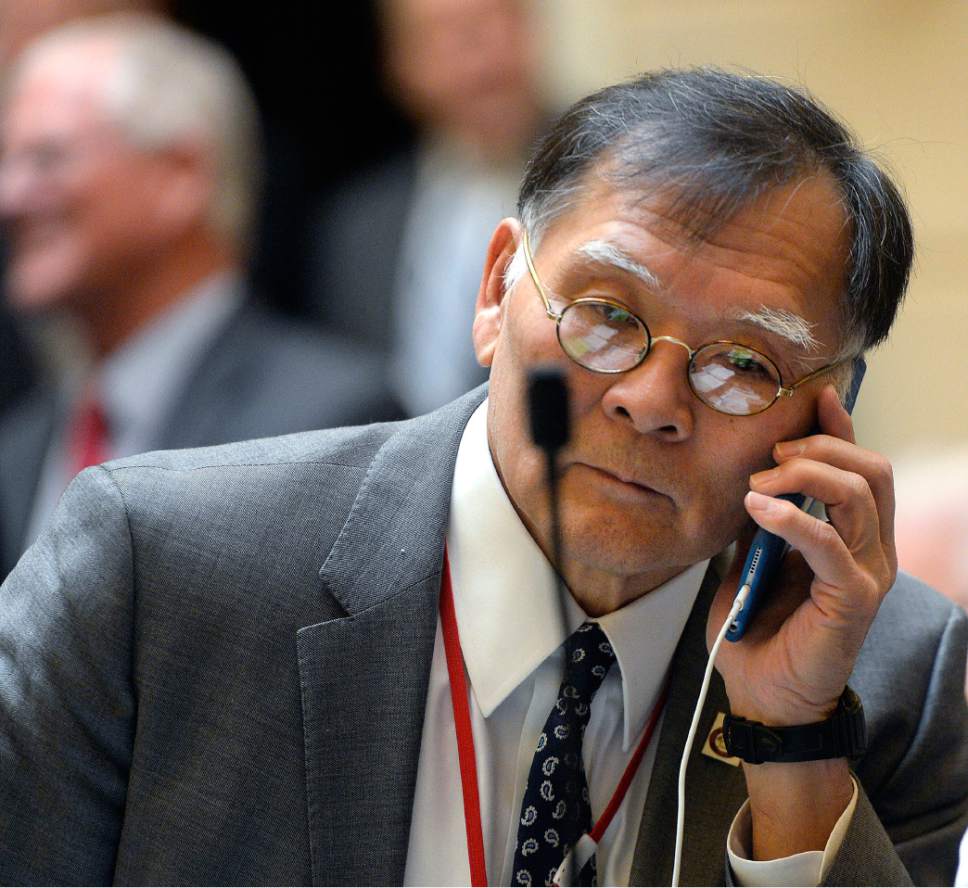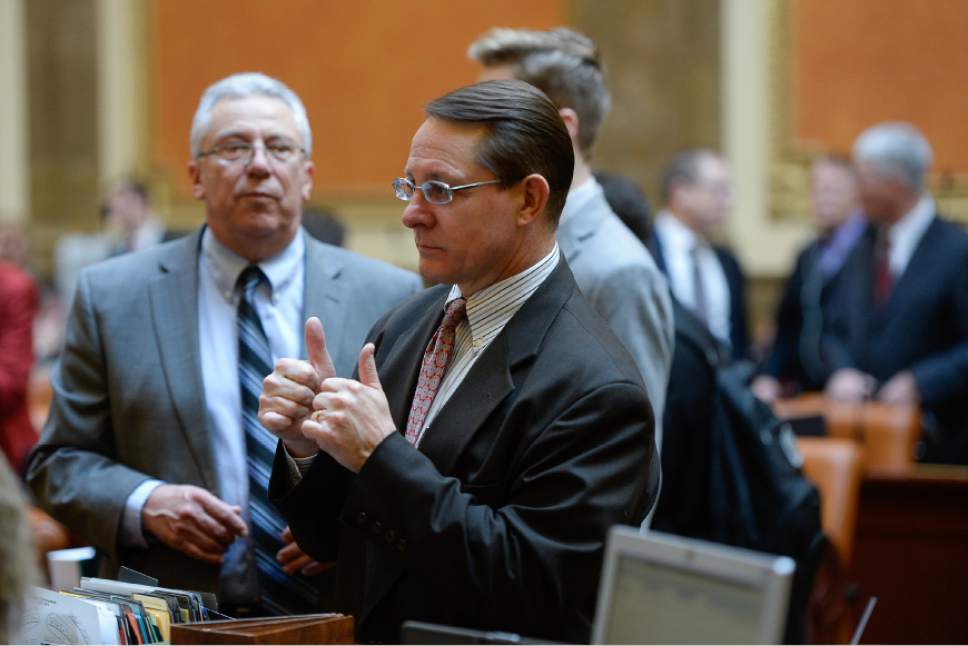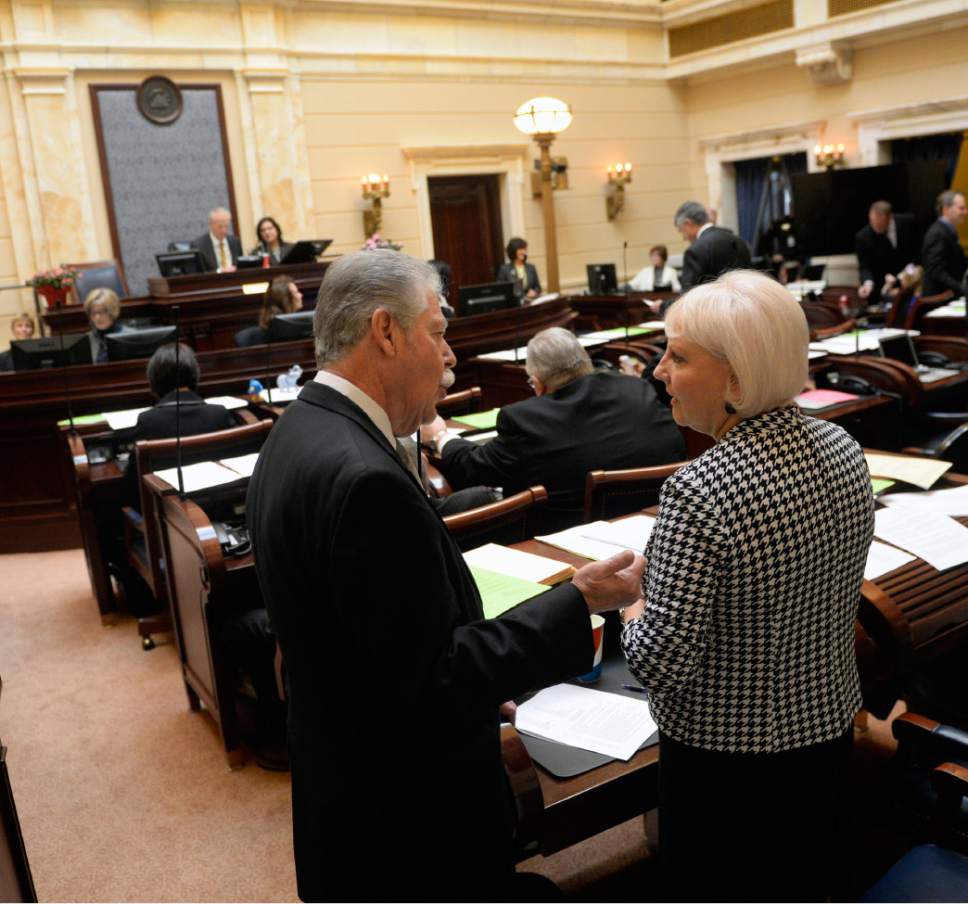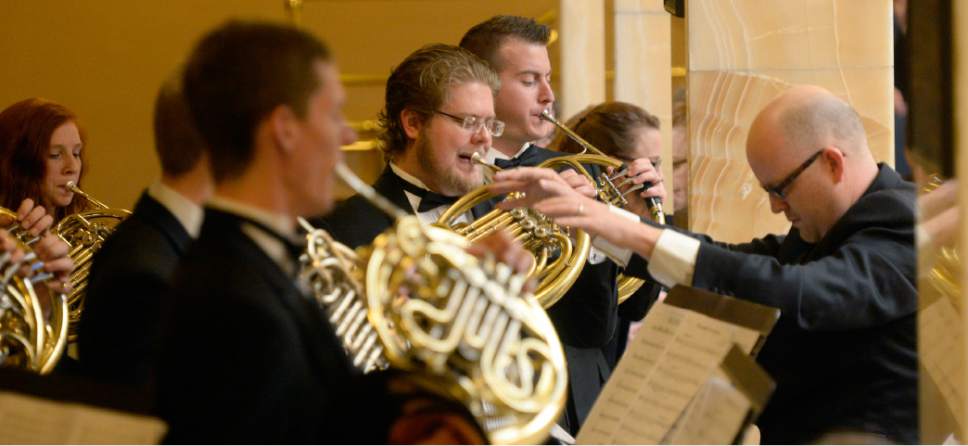This is an archived article that was published on sltrib.com in 2016, and information in the article may be outdated. It is provided only for personal research purposes and may not be reprinted.
Facing down contentious issues of medical-marijuana legalization, education funding, health care expansion, water development and taxes, Utah lawmakers convened the general session of the 61st Legislature on Monday with admonitions to begin preparing for the future.
"This is the beginning of the season. This is game day," said House Speaker Greg Hughes, R-Draper.
Senate President Wayne Niederhauser, R-Sandy, urged lawmakers to act now on looming problems with schools, water and education,
"I hope we have the courage to invest now," before the state's population of 3 million doubles in the next three decades, Niederhauser said. "To sacrifice and pay forward is what we should be considering."
Hughes spelled out his priorities for the upcoming session, including eliminating bad "red air" days, developing new water projects and claiming state control of millions of acres of federal land.
The speaker said that a strategy for a lawsuit by a firm hired by the Commission for the Stewardship of Public Lands, which Hughes called a "legal dream team," could ultimately let the state take ownership of the federal acreage.
"This is an issue that does not have to be filled with rancor and dissension," Hughes said. "I'm convinced that this effort … coupled with our federal delegation, led by Rep. Rob Bishop, gives us our best chance to not only make this fight, but to win this fight and finally see our public lands managed by this state."
Forty-six percent of Utahns support the effort, according to a recent Salt Lake Tribune/Hinckley Institute of Politics poll, but the price tag is estimated at $14 million.
Senate Majority Leader Ralph Okerlund, R-Monroe, said the state should proceed with its lawsuit and do so quickly.
"A $14 million lawsuit when there are billions of dollars of revenue out there may be worth it. I think it will be a great discussion," Okerlund said. "I think if we wait, we end up with more [national] monuments" declared by President Barack Obama.
Both chambers began the day with a moment of silence for Officer Doug Barney, a lawman who was shot and killed in the line of duty and for whom funeral services were held Monday.
As has been the case in recent years, Republicans hold huge majorities in both chambers.
In the Senate, they carry a 24-5 advantage, and in the House, Republicans outnumber Democrats 63-12 — so numerous that the room where Republicans meet for party caucuses was recently expanded to accommodate the body.
A revived and churning economy means plenty of money for legislators to spend,with Gov. Gary Herbert proposing a $14.8 billion budget with public and higher education focal points. The governor has recommended spending an extra $422 million on public schools and the state's colleges and universities.
Hughes called on the Legislature to "fulfill the vision" of his predecessor, the late House Speaker Becky Lockhart, and make progress toward putting more technology in Utah classrooms.
There is plenty to keep legislators busy, and already lawmakers are on pace to introduce a record number of bills.
There have been requests from legislators to have 1,122 bills drafted as of the opening of the session — 253 more than had been requested on the opening day of 2009.
Two bills seek to legalize marijuana-based products for medical purposes — a concept supported by 61 percent of Utahns, according to The Tribune/Hinckley poll. One bill, sponsored by Rep. Brad Daw, R-Orem, and Sen. Evan Vickers, R-Cedar City, would allow adults to use cannabis extracts with the THC — one of the active chemicals in marijuana — removed for a narrow list of ailments.
Another bill, sponsored by Sen. Mark Madsen, R-Saratoga Springs, would allow products with THC for a longer list of illnesses, would allow minors to use the drug and would create a regiment of licensed cultivation and dispensing facilities.
"I believe there is a pathway forward, and it will happen this session," Niederhauser told reporters. The main sticking point, he said, is finding a way that laws will allow bona fide medical use of marijuana, but block its recreational use.
—
Health care • After defeating Herbert's Healthy Utah proposal to use federal dollars and expand Medicaid last session, legislative leaders and the governor spent months hammering out an alternative plan that was dealt an even more resounding defeat.
While consensus has been elusive, the issue will be back this session, with legislators proposing various ideas to help provide health coverage to as many as 125,000 low-income Utahns.
Herbert may also be in for a fight over his attempt to take money earmarked for road construction and divert it to other programs. Legislative leaders, who are fellow Republicans, have fought such efforts in the past.
At the end of last session, lawmakers raised taxes on gasoline and imposed a property tax increase to help bolster education in rural Utah schools.
Heading into an election year, broad tax increases are unlikely, but there is a proposal by Sen. Curt Bramble, R-Provo, to begin taxing Internet purchases — an issue that has been stalled in Congress for years — which is currently costing the state an estimated $180 million in uncollected revenue. The bill would likely be challenged in court, but Herbert has said he "absolutely" would sign it into law if it passes.
Building new pipelines to deliver water to growing parts of the state — and how to pay for them — has been a growing issue for years. This year, Sen. Stuart Adams, R-Layton, is proposing legislation to earmark millions of dollars in sales tax for water projects.
"In some counties, the only homicides ever committed were over water," said Okerlund.
But the clamoring to dedicate as much as $3 billion to massive water projects has drawn skepticism from some, including Herbert, who has said water users should bear the cost of water projects. He wants to see conservation and a plan to pay for the pipelines before he supports investing taxpayer money.
—
New members • Three members of the 2016 Legislature are new since the body met last year. Rep. Lynn Hemingway, D-Millcreek — who previously served in the House from 2007 to 2014 — replaced Rep. Justin Miller, who resigned after pleading guilty to a felony fraud charge.
Rep. Derrin Owens, R-Fountain Green, replaced Rep. Jon Cox, who resigned to become Herbert's communications director. Sen. Lincoln Fillmore, R-South Jordan, filled the seat of Sen. Aaron Osmond, who resigned saying expanded job responsibilities made it impossible for him to take time off for the legislative session.
Women are far outnumbered in the Legislature, by an 88-16 mark.
The number of minorities among lawmakers is relatively small. The 104 legislators include four Latinos, four of Asian ancestry, two blacks and one senator who is openly gay.
The citizen lawmakers come from a wide variety of professions.
The body includes 17 attorneys, five doctors, two dentists, 12 in real estate, 12 educators, four ranchers/farmers, two electricians, two bankers, two accountants, three financial advisers, two insurance agents and three homemakers.
Other professions include architect, to engineer, pharmacist, salesman, social worker, Utah Highway Patrol officer and software designer.
Twitter: @RobertGehrke


